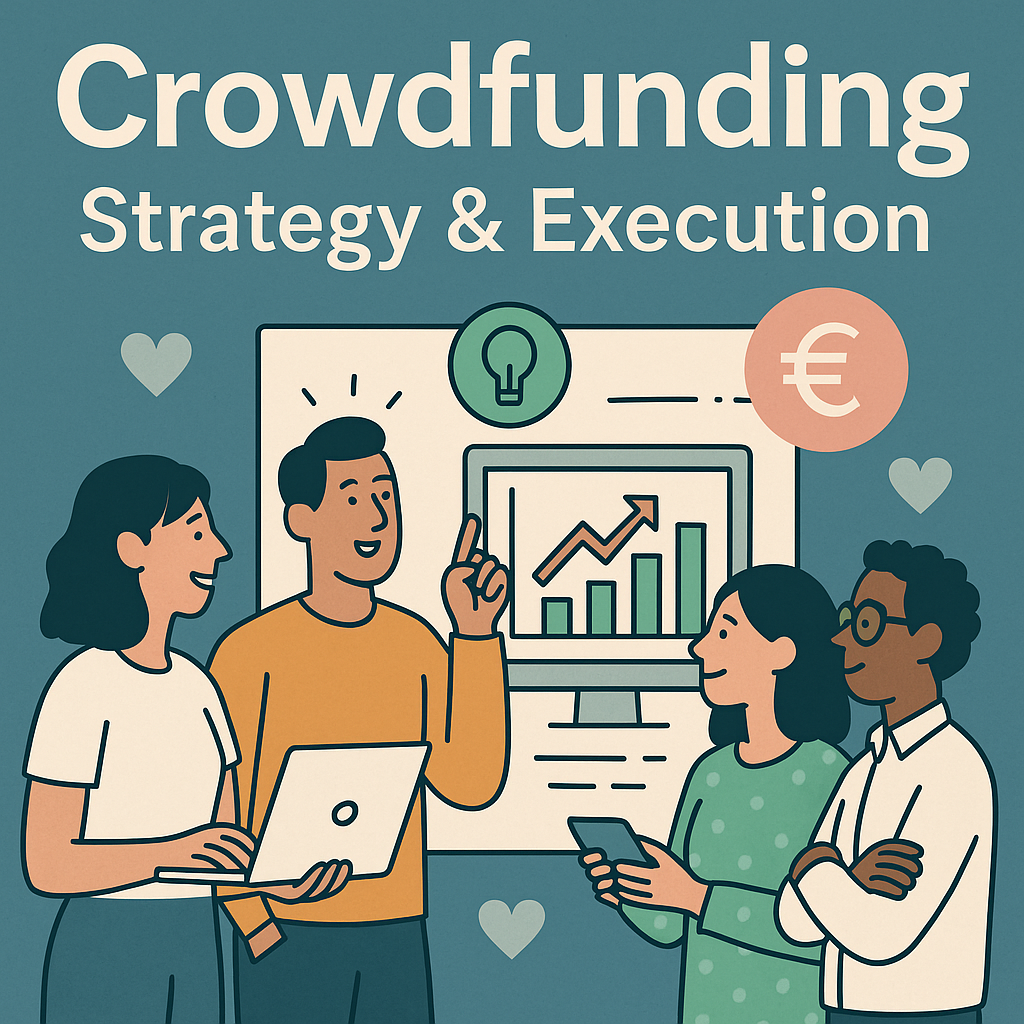

Crowdfunding
With the death of the “job for life”, the ability to think fast, adjust and adapt has become one of the most valuable enterprise skills for the future.
As a result, universities have created enterprise departments, entrepreneurship programs, business plan competitions and sometimes have even created venture funds, or angel networks. All of these aim to deliver part of the vision of the entrepreneurial ecosystem, and to prepare students for life in the real world!
In recent years, however, there has been a new trend, crowdfunding, that ties together many of these concepts.
Crowdfunding can not only supercharge university enterprise, but it can create incredibly powerful experiences for those involved, and change the relationship between the university and its students.
Whether you believe crowdfunding is a game changing invention, or whether you are reserving judgement, it’s here to stay – and it is already proving it has the power to make a difference.
Crowdfunding is a real test of a real idea in a real market.
It requires storytelling, sales, video production, copywriting, networking and campaign planning before the campaign, marketing, social media and PR during the campaign, and significant product work, logistics and delivery post-campaign. And yet whilst it is all real, it’s also a safe place to try – and to either succeed or fail.
This means it’s ideally suited to an educational environment, as the success or failure of any campaign can be analysed and learned from.
Students from the University of Essex, for example, crowdfunded £4,605 to develop a smartphone controlled by simply winking your eyes and needed to cultivate all the above skills to make the project a success. Crowdfunding allows enterprise departments to nurture a range of entrepreneurial skills in students.

University business departments running crowdfunding programs
Four business departments within UK universities currently run crowdfunding programs with Hubbub: UCL, UWE, Southampton Solent and Middlesex Business School. These act as a test-bed for students to market their ideas in a real online environment.
If you give students money for their ideas, they’ll pursue them, often on their own or in small teams. If you make them crowdfund for their ideas (possibly with some matchfunding from the university!) they will rally their friends, family and networks to help them raise.
This means that instead of your program reaching the 5 or 10 projects you can fund in any given year, it reaches most of the university, which establishes the enterprise mindset across a university ecosystem.
Matchfunding incentivizes students
Matchfunding can be used wisely by enterprise teams to further drive an entrepreneurial spirit in students.
A grant or pot of money (say of $4000) that is typically used as a business competition prize could instead be used to matchfund every donation up to $4000 to a crowdfund a business idea. This gives students further motivation to market their project to maximize how much they raise.
See these projects that have used matchfunding: University of Essex’s Brainstorm project. University of York’s Radio project.

Crowdfunding programs can bring together enterprise, development and alumni relations teams.
Development and alumni relations teams want awesome content to engage alumni, as well as information about who is interested in giving to the university (or its students). A crowdfunding program provides this content and this data!
Development and alumni relations also have access to huge databases of warm leads (alumni) to market campaigns to. Finally, within that pool of alumni is a network of incredibly important mentors for the student projects, ideas or business that emerge. Connecting the dots here is win-win for everyone.
When current students get funded by alumni, staff or their friends, it teaches them what it’s like to be on the receiving end of someone else’s generosity.
This has been shown to establish behavioural norms which persist long after the student has left, and increase the probability of them participating in alumni giving or mentorship in the future. I speak more about creating a culture of giving within an institution in a post you can read here.
The last couple of years have seen an explosion of user-generated content, to such a degree that conventional organisational messages are often ignored. But crowdfunding programs, filled with student-created projects, create awesome content!
Even better, the students behind the projects are heavily incentivized to push that content out into the wider world, using an authentic, human voice. This is the kind of content marketing teams dream of.

By clicking “Accept”, you agree to the storing of cookies on your device to enhance site navigation, analyze site usage, and assist in our marketing efforts. View our Privacy Policy for more information.


